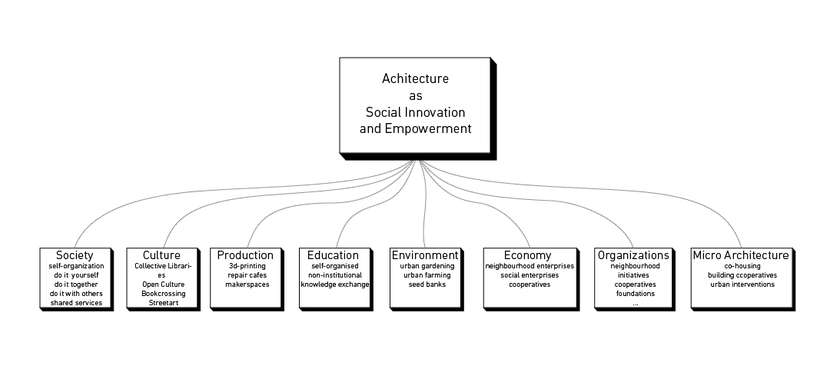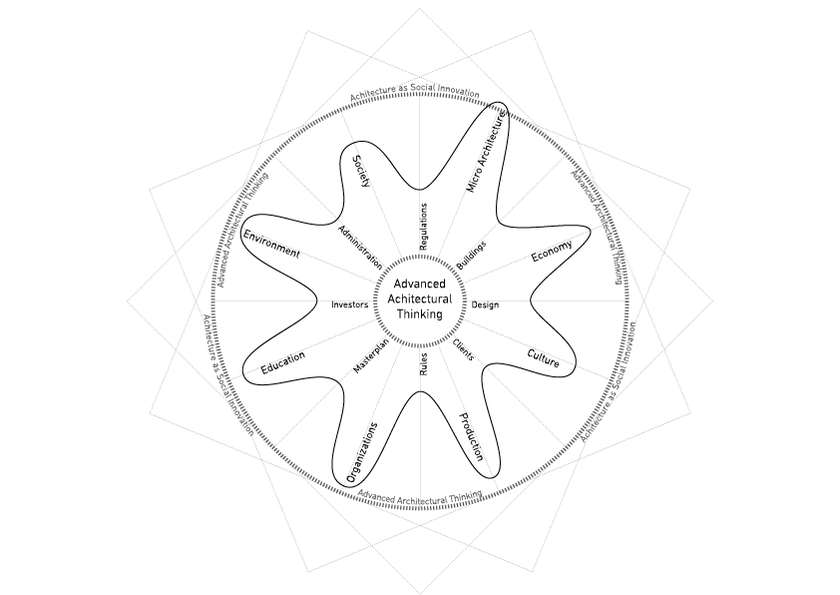Idea by
Wulf Kramer, Robin Lang
Yalla Yalla! - studio for change
http://www.doitwithyallayalla.com
Call for ideas 2016
Architecture as Social Innovation
Architecture as Social Innovation
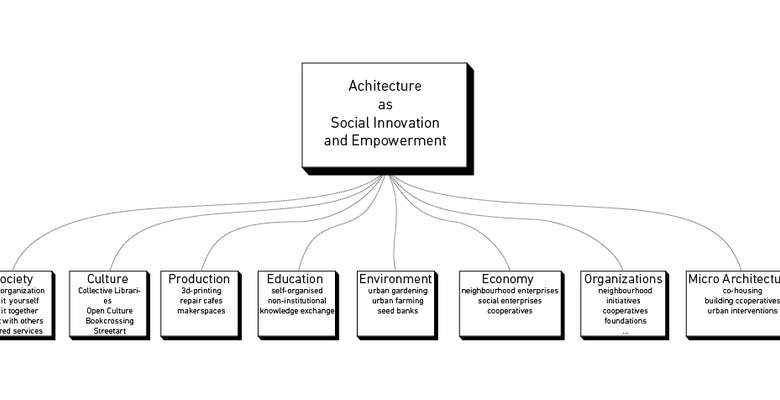
Architects think and plan in integrative processes to develop solutions that incorporate several interests, a design and the legal framework. They develop a sense of reality and know what is possible to achieve. This way of thinking is the foundation of the future practice, but it has to be expanded. Not only because of the crises that struck our societies we saw a shift in the topics architects deal with. Topics such as community building, placemaking and new funding methods became more relevant to our field. We have to enhance our thinking with these tools and develop advanced architectural thinking. In this mode architects use their structural methods of thinking and develop next to their sense of reality a sense of possibilities. Thus we can develop new and alternative narratives and holistic approaches of what can become possible. Future Architects will focus on architecture as empowerment. Architecture is no longer a matter of form, but rather a matter of what the projects enable
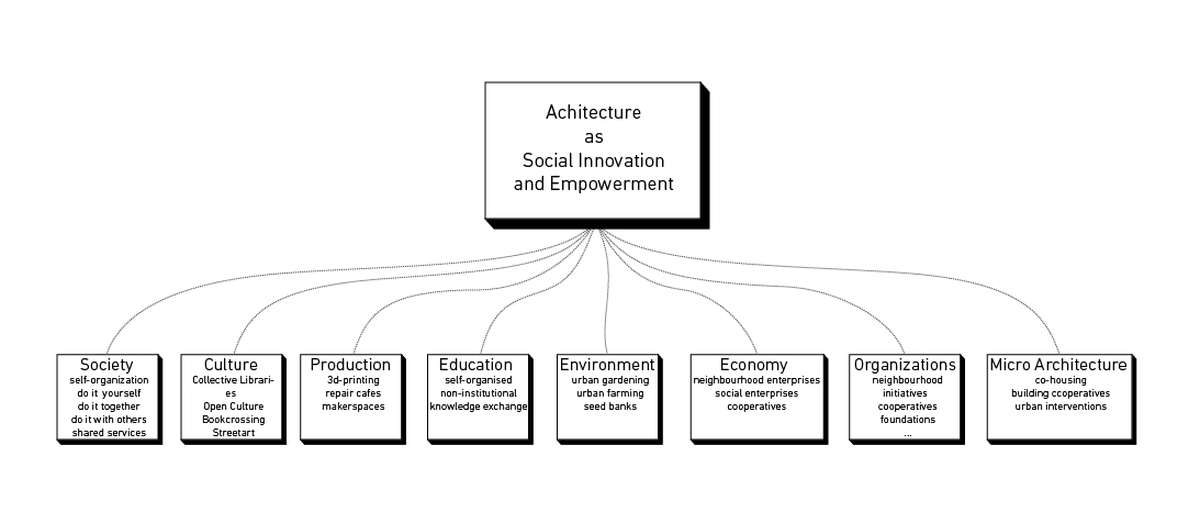
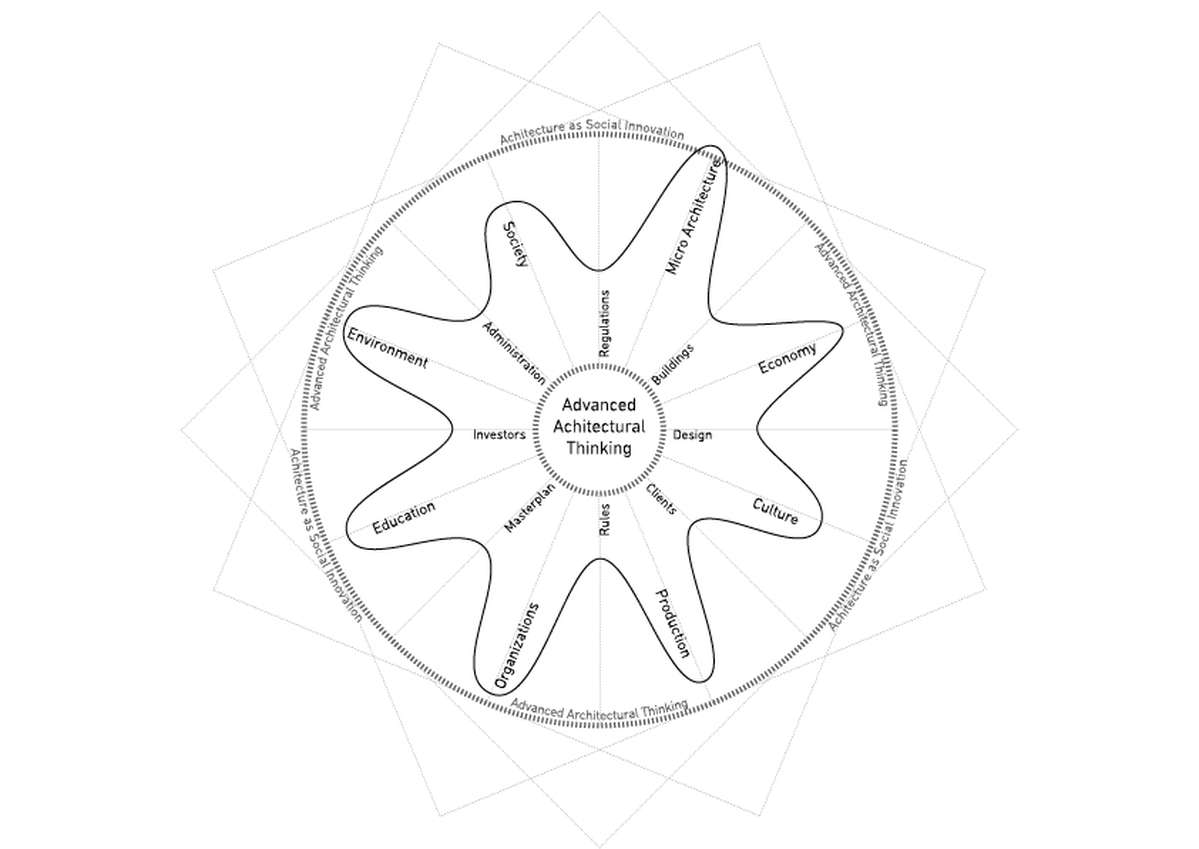
Architecture as Social Innovation
Architecture as Social Innovation

Architects think and plan in integrative processes to develop solutions that incorporate several interests, a design and the legal framework. They develop a sense of reality and know what is possible to achieve. This way of thinking is the foundation of the future practice, but it has to be expanded. Not only because of the crises that struck our societies we saw a shift in the topics architects deal with. Topics such as community building, placemaking and new funding methods became more relevant to our field. We have to enhance our thinking with these tools and develop advanced architectural thinking. In this mode architects use their structural methods of thinking and develop next to their sense of reality a sense of possibilities. Thus we can develop new and alternative narratives and holistic approaches of what can become possible. Future Architects will focus on architecture as empowerment. Architecture is no longer a matter of form, but rather a matter of what the projects enable
